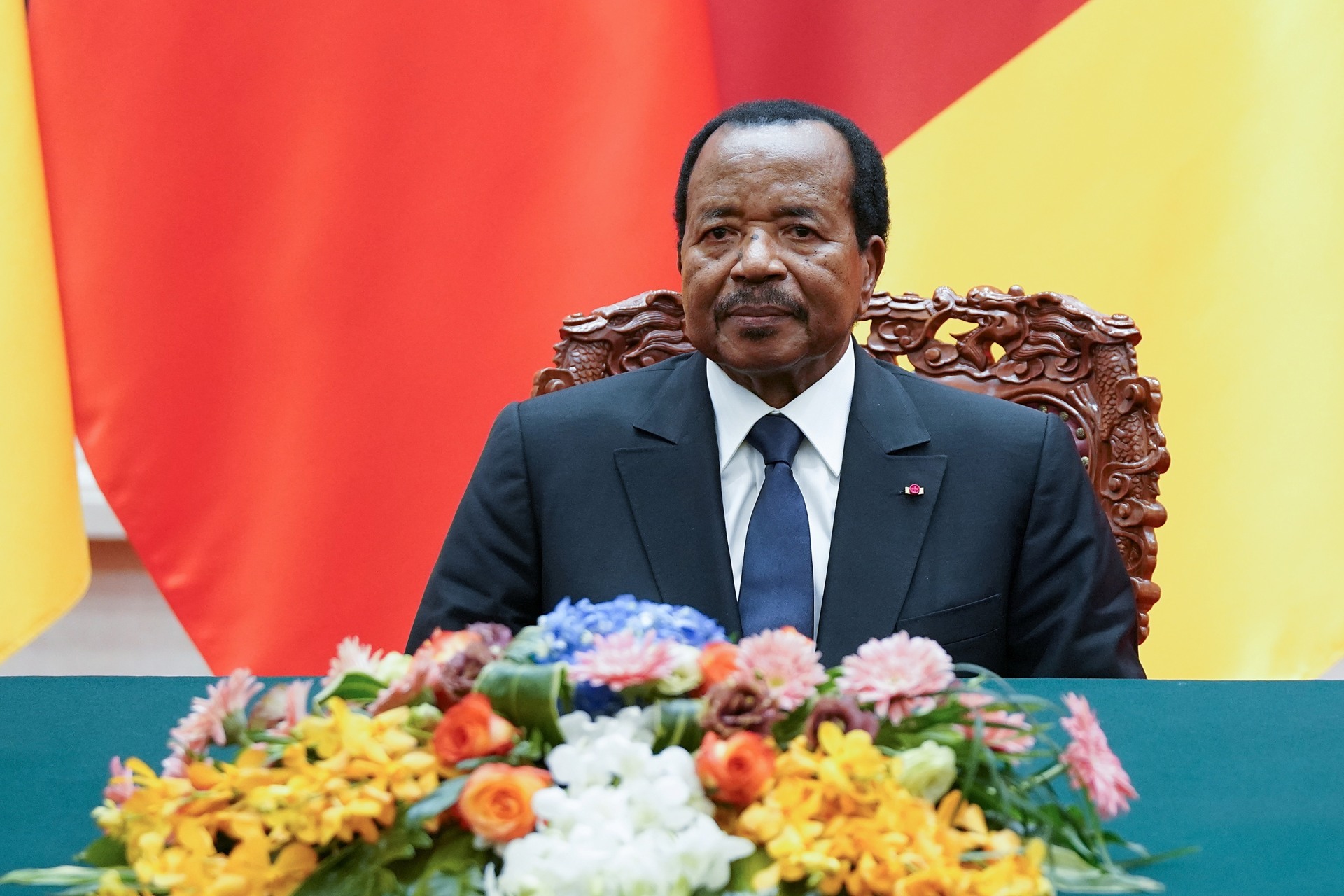President Biya of Cameroon Seeking Reelection Amid Controversy

By experts and staff
- Published
By
- Guest Blogger for John Campbell
Nolan Quinn is the Africa program intern at the Council on Foreign Relations in Washington, DC. He is a master of public policy student at the University of Maryland, where he is studying international development policy and international security and economic policy.
On July 13, Cameroonian President Paul Biya officially announced he will run for reelection in October. Biya, at eighty-five years old, is seeking a seventh consecutive term that would extend his thirty-six-year rule to 2025. The octogenarian, who first assumed office in 1982, is already the oldest leader in sub-Saharan Africa and the second-longest serving president on the continent, behind only President Teodoro Obiang Nguema Mbasogo of Equatorial Guinea.
The announcement comes on the back of certain allegations that the U.S. Ambassador to Cameroon, Peter Barlerin, attempted to influence the upcoming elections. According to the media, speaking to Biya last month, Barlerin advised the president to “be thinking about his legacy” when deciding whether to pursue reelection. Cameroonian Communication Minister Issa Tchiroma Bakary responded, saying that the Cameroonian people would not “accept any diktat from whatever power.” More recently, local newspapers accused Barlerin of contributing close to $5 million to opposition presidential candidates. While both the U.S. Embassy and the opposition have denied the accusations, Biya loyalists have nevertheless used the stories to help consolidate support for another term. Unless a united opposition emerges, Biya seems all but certain to win in October.
Despite his relatively secure position, it seems Biya is taking no chances. The Journal du Cameroun reported that from January to June, 2018, only 3 percent of new voter registrations came from the Northwest and Southwest Regions, where around 20 percent of the population resides. Separatists from these mainly English-speaking regions—Cameroon is predominantly French-speaking—are fighting the government in a bid to establish an independent “Ambazonia” after decades of marginalization. Some accuse Biya and the electoral commission of disenfranchising citizens from the Anglophone regions under the guise of a crackdown on the “opaque use of financial resources and staffing.” Biya has also endorsed a bill passed by parliament delaying the next legislative elections by a year to October 2019, citing difficulties from “overlapping electoral operations.”
Biya’s response to the Anglophone crisis could increase pressure on him to step down. In June, Amnesty International published a report on human rights violations by the Cameroon government against civilians in the Anglophone regions, and this week, Amnesty claimed it had “credible evidence” that a widely-circulated video showing Cameroonian forces summarily executing two women and two young children was authentic. Cameroon’s government has denounced such coverage as “crude lies” and “fake news.” Ironically, a video allegedly showing cannibalism in one of Cameroon’s English-speaking regions, which a Cameroonian government official referred to while comparing the separatists to Boko Haram, was later confirmed as fake, having come from a Nigerian movie set.
Biya’s likely reelection will probably worsen the Anglophone crisis. The conflict’s parties have not participated in any meaningful dialogue and violence is escalating, causing many to flee into neighboring Nigeria. How this will affect U.S.-Cameroon relations, however, is unclear. According to a press release from the U.S. Department of State, the United States is “gravely concerned over the recent video,” but it has stopped short of blaming the government, instead calling for further investigation. Continued destabilization could warrant more robust U.S. involvement to contain spillover into Nigeria, itself dealing with major security issues in the lead-up to its own presidential elections.